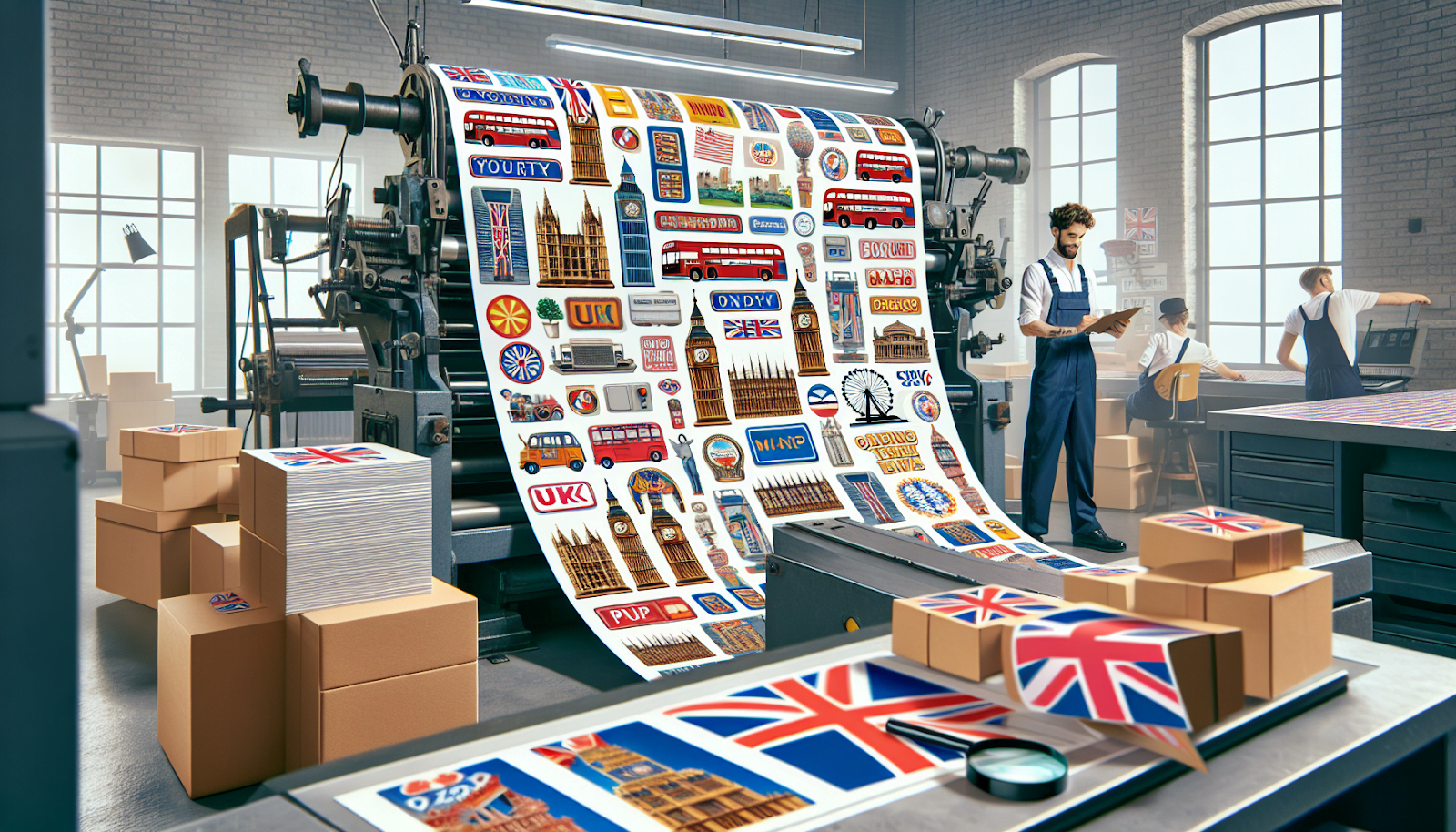Introduction
Printed labels have been an integral part of product packaging and identification in the United Kingdom for decades. As technology advances and consumer preferences evolve, the label printing industry in the UK is set to undergo significant changes. In this article, we will explore the future of printed labels in the UK, focusing on the latest trends, innovations, and challenges that are shaping the industry.
The Current State of Label Printing in the UK
The UK label printing industry is a well-established and thriving sector, with numerous companies offering a wide range of services, from design and production to distribution and application. According to recent market research, the UK label printing market is expected to grow at a steady rate over the next few years, driven by increasing demand from various industries, such as food and beverage, cosmetics, and pharmaceuticals.
Key Players in the UK Label Printing Industry
Some of the leading companies in the UK label printing industry include:
- Label Apeel
- Labelnet
- Abbey Labels
- The Label Makers
- CS Labels
These companies offer a comprehensive range of label printing services, utilising state-of-the-art technology and materials to create high-quality, customised labels for their clients.
Trends Shaping the Future of Printed Labels in the UK
Digital Printing Technology
One of the most significant trends in the UK label printing industry is the increasing adoption of digital printing technology. Digital printing offers several advantages over traditional printing methods, such as faster turnaround times, lower setup costs, and the ability to produce short runs of customised labels efficiently.
Advantages of Digital Printing for Labels
- Faster turnaround times
- Lower setup costs
- Ability to produce short runs efficiently
- Increased flexibility and customization options
Sustainable and Eco-Friendly Labels
Another major trend in the UK label printing industry is the growing demand for sustainable and eco-friendly labels. As consumers become more environmentally conscious, they are increasingly seeking out products with labels that are biodegradable, recyclable, or made from renewable materials.
Examples of Sustainable Label Materials
- Recycled paper
- Biodegradable plastics
- Plant-based adhesives
- Soy-based inks
Interactive and Smart Labels
The integration of technology into printed labels is another exciting development in the UK label printing industry. Interactive and smart labels, which incorporate features such as QR codes, NFC tags, and augmented reality, are becoming increasingly popular as a way to engage with consumers and provide additional information about products.
Benefits of Interactive and Smart Labels
- Enhanced consumer engagement
- Increased product transparency
- Improved supply chain management
- Opportunities for data collection and analysis
Challenges Facing the UK Label Printing Industry
Despite the many opportunities and innovations in the UK label printing industry, there are also several challenges that companies must navigate to remain competitive and successful.
Competition from Digital Media
One of the biggest challenges facing the UK label printing industry is competition from digital media. As more consumers turn to online platforms for product information and reviews, printed labels may become less relevant or important in the purchasing decision process.
Cost Pressures
Another challenge for UK label printing companies is the increasing cost pressures from clients who are looking for high-quality labels at lower prices. To remain competitive, label printing companies must find ways to streamline their operations, reduce waste, and optimise their production processes.
Regulatory Compliance
Compliance with various regulations and standards, such as those related to food safety, chemical labelling, and environmental protection, is another challenge for UK label printing companies. Ensuring that labels meet all the necessary requirements can be a complex and time-consuming process, requiring significant investment in expertise and resources.
Opportunities for Growth and Innovation
Despite the challenges, there are also many opportunities for growth and innovation in the UK label printing industry.
Personalization and Customization
One area of opportunity is in the increasing demand for personalised and customised labels. Label printing companies offering flexible, customized options will attract consumers seeking unique experiences.
Expanded Application Areas
Another opportunity for growth in the UK label printing industry is in expanding into new application areas beyond traditional product labelling. For example, labels can be used for asset tracking, inventory management, and security purposes in various industries, such as healthcare, logistics, and manufacturing.
Collaboration and Partnerships
Collaborating and Partnering with other companies boosts growth and innovation in the UK’s label printing industry. Collaborating on new technologies lets label printing companies offer clients the latest and most effective labeling options.
The Role of Technology in the Future of UK Label Printing
Technology will undoubtedly play a critical role in shaping the future of printed labels in the UK. From digital printing and smart labels to automation and artificial intelligence, the label printing industry will need to embrace and integrate new technologies to remain competitive and meet the evolving needs of clients and consumers.
Automation and Artificial Intelligence
Automation and artificial intelligence (AI) are set to transform many aspects of the label printing process, from design and production to quality control and distribution. By leveraging these technologies, UK label printing companies can improve efficiency, reduce errors, and enhance the overall quality of their products and services.
Internet of Things (IoT) and Connected Labels
The Internet of Things (IoT) and connected labels are another area where technology is poised to have a significant impact on the UK label printing industry. Embedding sensors in labels allows real-time tracking, optimizing supply chain operations, and improving customer experiences.
3D Printing and Unconventional Label Materials
3D printing and unconventional materials like conductive inks and self-adhesive electronics will influence the future of UK label printing. Innovations could create labels with enhanced functionality, such as sensing environmental conditions or interacting with other devices.
Conclusion
The future of printed labels in the UK is shaped by a complex interplay of trends, challenges, and opportunities. The UK label printing industry is set for major changes with digital printing, sustainable materials, and smart features.
To succeed in this dynamic and evolving landscape, UK label printing companies must stay attuned to the changing needs and preferences of their clients and consumers, while also investing in the latest technologies and innovations. By embracing change, the UK label printing industry can thrive and remain vital to the economy and society.
As we look to the future, it is clear that printed labels will remain an essential and integral part of product packaging and identification in the UK. However, the form and function of these labels are set to evolve in exciting and transformative ways, driven by advances in technology, shifting consumer demands, and the ever-present need for greater efficiency, sustainability, and innovation.

















